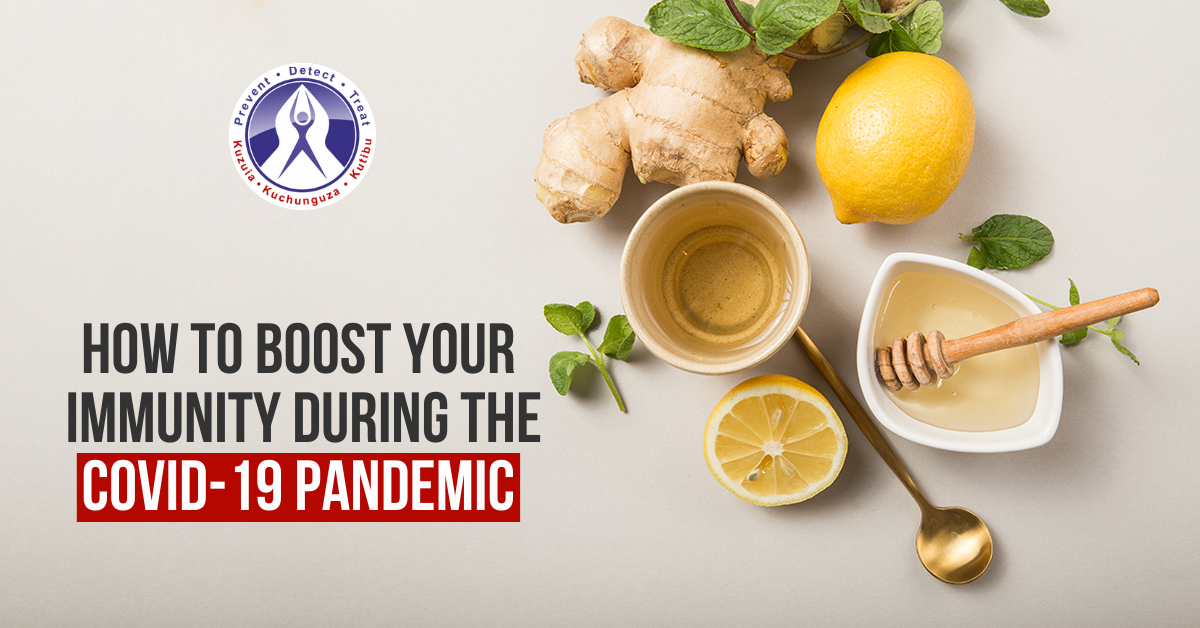How to Boost Your Immunity During The COVID-19 Pandemic
1,134 viewsYour immune system works like a powerful gate that guards your body and prevents invaders like germs, viruses, and bacteria from entering it. If you don’t nurture your immune system, it burns down and an invader makes way into your body. If that invader happens to be a deadly virus like the novel coronavirus, you could get seriously ill. That’s why it is all the more important to strengthen your immunity now. Following are some easy to implement tips that will help you boost your immunity during the COVID-19 pandemic:
1. Change your diet to boost your immune system

Your gut health has a direct impact on your immune system. One of the simplest tips to boost your immunity is to eat right and maintain a healthy digestive system. The strength of your immune system depends on how effective your white blood cells can produce the antibodies to fight bacteria and viruses.
What to eat
A low-fat diet, rich in colorful vegetables is known to power up your white blood cells with essential nutrients. It is also beneficial to consume foods rich in zinc. Zinc is a nutrient that is particularly helpful in boosting white blood cells. Nuts, lentils, sesame seeds, and beans are excellent sources of zinc.
It is essential to include fermented foods in your diet because the probiotics in these foods can help the good bacteria in your body grow. Try to include kimchi, sauerkraut, or yogurt in your daily diet.
Garlic and ginger: Immunity boosters

Garlic and ginger are known to have excellent virus-fighting properties. Consuming ginger or garlic every alternate day can help to boost your immune system during the COVID-19 pandemic. You can add those in curries, soups, tea. You can also consume ginger and garlic raw, however, make sure you don’t consume more than 4 grams of ginger or garlic per day.
2. Exercise and sweat often for stronger immunity

Regular exercise has tons of benefits for the body, and an improved immune system is one of them. Research has shown that your body produces more antibodies and T cells if you exercise on a regular basis. These T cells strengthen the immune system of the body making it stronger against harmful viruses and bacteria.
In addition to that, exercise makes your body sweat more. Sweating also helps to boost your immune system. When you sweat your body temperature rises and it may be able to kill pathogens if there are any.
Exercise and respiratory diseases
The novel coronavirus disease (COVID-19) is a respiratory disease. Regular exercise is particularly more helpful in preventing respiratory diseases like COVID-19.
According to research, doing moderate exercise at least 5 days a week reduces your chances of getting a respiratory infection by almost 50% compared to a person who doesn’t exercise or leads a sedentary lifestyle. Moreover, if you do catch a respiratory infection, your fitness levels can significantly protect you from developing severe symptoms.
Therefore, regular exercise is extremely important to boost immunity during the COVID-19 pandemic.
3. Get enough sleep to avoid the weakened immune system

Sleep and immune system are interconnected in more than one way. On one hand, a change in your sleeping patterns has an effect on your immune system. On the other hand, if your immune system is trying to fight an infection, your sleep patterns will be disrupted.
There have been many studies that have clinically proven that sleep is one of the best medicines to fight common infectious diseases like the cold.
If you don’t get enough sleep persistently, prolonged sleep loss reduces the strength of the body’s defence system. Research suggests that people who get less than 6 hours of sleep a night are 4 times more likely to catch a cold and other respiratory infections compared to people who get at least 7 hours of sleep every night.
How much sleep you should get every night
The Sleep Foundation recommends young adults and adults should sleep for 7-9 hours every night and people older than 64 years of age should get 7-8 hours of sleep a night.
Considering the impact of sleep on the immune system, it’s advisable that you get enough sleep and have regular sleep schedules to boost your immunity during the COVID-19 pandemic.
4. Practice stress management
An event like the coronavirus pandemic can make it difficult for most people to keep the stress away. However, stress management is inevitable for protecting your immunity from weakening.
How stress affects immunity
When you are stressed, your body releases more of the stress hormone cortisol. Short term stressful incidents can actually boost your immunity as cortisol manages and restricts inflammation in your body. However, if it happens regularly, your body gets used to more cortisol. As a result, it loses its ability to fight inflammation.
Moreover, chronic stress directly impacts the number of white blood cells your body produces. This, in turn, reduces the power of your immune system.
Stress management during the coronavirus outbreak

To boost your immunity during the COVID-19 pandemic, it is essential to manage stress. It’s important to learn and practice relaxation techniques like yoga and meditation regularly. Additionally, exercising releases endorphins that make you feel less stressed.
Be mindful of how you spend your day and spare time to indulge in activities you like doing. Take frequent breaks from the news and social media to help your mind relax and stay positive. If you feel you aren’t able to manage your stress, you must seek help from a professional immediately.
Final Words
These tips may seem very simple but regularly incorporating these into your routine can have a miraculous impact on your body’s overall immunity power. Do not fall for the supplements and herbs that claim to boost immunity. There is no scientific evidence suggesting they benefit your overall immune system. Instead, take only the supplements prescribed by your doctor. Lastly, maintaining hygiene is one of the most basic ways to boost your immune system during the COVID-19 pandemic. Wash your hands often, take frequent showers, and maintain social distancing. Click here to know more about COVID-19, coronavirus symptoms, and prevention.


